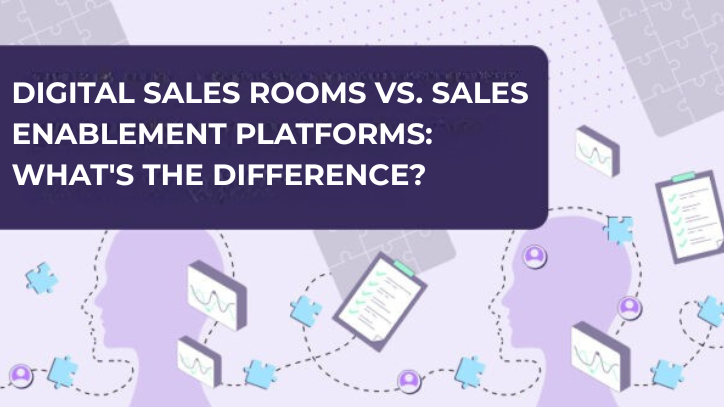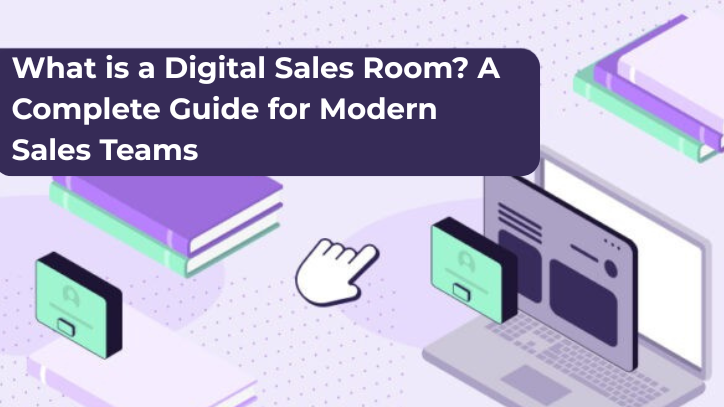Updated on July 30, 2024.
Some call them the middle man. Others say they are the missing link between a company’s sales team and product team. Who is this hero saving the day in the SaaS sales universe, you ask? They’re the SOLUTIONS ENGINEER!
(Don’t step on their cape.)
When it comes to SaaS sales, one of the biggest friction points is the gap between your sales and product teams. Understandably, sales reps don’t always have the in-depth, technical knowledge to address all the possible questions and concerns a client might have.
And this can either lead to lost sales or unhappy customers because there was a mismatch between expectations and the product.
Enter the solutions engineer (SE).
So, what exactly does an SE do during the SaaS sales process? Well, that question comes up a lot actually. But there’s no need to fear. Underdog… oh right, we mean we are here.
In this article, we’ll go over exactly what a solutions engineer is, what they do, and whether having one on your team really can boost SaaS sales.
But before we go any further, let’s go over the basics.
What is a solutions engineer?
As part of the presales process, a solutions engineer supports sales by developing and presenting product solutions to clients. To do this, SEs work right alongside sales teams to create product demos, proof of concepts (PoCs), and custom software solutions.
You can think of them as being like the technical support for the sales process. While sales reps present the bigger picture in terms of the product’s value, solutions engineers bring a deep, technical understanding of the company’s product and its capabilities. They use this knowledge to support sales reps and answer technical questions that prospects may have.
But their job doesn’t end there. Solutions engineers also help support customers throughout the sales lifecycle. They need to understand any technical issues a customer may have and how to find a solution that overcomes them.
In many ways, a solutions engineer bridges the gap between the sales and product teams. Not only do they need to understand the product almost as well as the development team to troubleshoot and come up with solutions on the fly, but they also need to be approachable and business savvy to nurture clients and support sales.
What are the responsibilities of a solutions engineer?
Being a solutions engineer is all about wearing many different hats. Here are just a few of the many things that a solutions engineer will do during the sales lifecycle:
- Develop a deep understanding of the product, its capabilities, and its shortcomings.
- Join discovery calls, research clients, and identify pain points.
- Help develop demo agendas and prepare software demo presentations.
- Address any technical questions or objections from the client.
- Build and maintain relationships with customers before and after the sale.
- Support new or existing customers during onboarding, implementation, integration, configuration, and customization.
- Research and help with new technical solutions for clients.
- Give technical feedback from clients to developers.
- Support the SaaS marketing team when they create white papers, technical manuals, and other materials.
However, a solutions engineer’s role isn’t just limited to the responsibilities we listed above.
For example, let’s say an important client has a specific pain point that your current product doesn’t address. The solutions engineer might need to jump into a project management role and lead the development of a custom solution for that client.
Is a solutions engineer a sales job?
Yes and no. Why? Because this is a job that requires a very different skill set than your average sales job.
A solutions engineer is probably the most customer-facing technical role you can think of as they work hand-in-hand with the sales team.
But solutions engineers usually aren’t responsible for other sales activities like qualifying leads and managing a prospect database. Instead, they work with a number of different teams, including sales, marketing, development, design, and product teams, and have a much more in-depth understanding of the company’s product.
What makes a good solutions engineer?
Your product may solve some of the most common pain points customers in a specific industry face. But it’s important to remember that no two clients are exactly alike. They can have different technology stacks, software portfolios, and workflows. And these factors could impact the integration with your product.
This is where solutions engineers need to be able to apply their product know-how to show the true value your product will bring to each client. That requires adaptability, the ability to learn quickly, and knowledge of different industries and businesses.
So, good solutions engineers will have what’s called a ‘T’-shaped skill set. They offer a deep understanding of the SaaS product combined with many of the people and soft skills that salespeople need to have.
This is a super technical job, and because of this, a solutions engineer will usually need to have at least a bachelor’s degree in a related field. That said, there are many paths to becoming a solutions engineer.
One thing’s for sure, there’s no substitute for real-life experience. Actual work experience is one of the best ways to develop the problem-solving and hands-on skills that solutions engineers will need to use daily.
That’s why Solutions Consulting Leader at Braze, Rachel Tilghman, told us that she believes it’s crucial for solution engineers to always be learning.
“Someone who is good at presales is going to be curious and always learning,” she said. “Because the technology is always going to be changing, the industry is always going to be changing, and if it’s our job to be the expert, it’s also our job to always be learning.”
What’s another name for solutions engineers?
What’s in a name? Well, for solutions engineers, the name really does make a difference.
Even though solutions engineers and solutions architects are sometimes used interchangeably, they aren’t exactly the same thing. A solutions engineer creates solutions for other companies (e.g., SaaS clients), while a solutions architect creates solutions for the company they are a part of.
It’s also pretty common to see solutions engineers get confused with technical sales reps and demo engineers. However, simply put, technical sales reps are just sales reps that specialize in selling technical products. Compared to solutions engineers, they might not have the technical knowledge of the product to be able to solve problems like integration issues.
Meanwhile, demo engineers exclusively create the collateral needed for giving product demos. Unlike solutions engineers and sales engineers (which can actually be used interchangeably), they do not directly interact with clients.
Benefits of having a solutions engineer on your sales team
There are a lot of benefits to having a solutions engineer on your sales team, including:
A bridge between sales and technical teams
At the end of the day, it’s up to the sales reps to close the deals. They specialize in customer relations, nurturing leads, and closing techniques. And they understand the product well enough to sell it. But generally, they won’t know all the nitty gritty, technical details of the product. That’s why it’s helpful to have a solutions engineer who can act quickly when clients have technical concerns.
Product onboarding and adoption
Solutions engineers understand the product and any technical issues a client could run into. So, solutions engineers can provide product training, which increases the likelihood of smoother client uptake.
Manage prospect expectations
No matter how great the product is, not every integration can be perfect. Because solutions engineers are aware of both a product’s capabilities and limitations, they can set realistic expectations from the very beginning. This includes anticipating any problems that might occur, which, in turn, can limit churn and improve customer satisfaction.
Streamline the sales process
Everyone wants to save time at work. Period. By having someone with technical expertise on the sales team, it minimizes the time spent going back and forth between sales and development, R&D, or product teams. And because they are involved in customer interactions and demos, they can also take care of customer concerns right away instead of “getting back to them later.”
Disadvantages of hiring a solutions engineer
We wouldn’t really call them disadvantages, but there are two key challenges when it comes to hiring a solutions engineer.
Solutions engineers are hard to find as it’s not such a well-known career and it requires a pretty broad skill set.
It also doesn’t help that the SaaS sales market has become incredibly competitive, so solutions engineers typically have high salaries that may not be within everyone’s budget. This is especially true for startups and growing small businesses.
Can you use software instead of hiring a solutions engineer?
Plain and simple, it doesn’t hurt to have a solutions engineer. In fact, it can be really helpful.
Solutions engineers support the sales process for technically advanced products, and can make a meaningful difference when it comes to offering timely technical expertise.
But, like we mentioned earlier, finding someone with a high level of technical expertise to develop, customize, and configure product demos for each client is not an easy ask.
Ahhh, if only sales teams could develop their own interactive and personalized demos quickly and easily. That would definitely lighten the heavy load that solution engineers are carrying.
Wait, wait, wait, they can! If, of course, they are using a product demo platform.
These platforms allow sales teams to create interactive and realistic sales demos in a safe, secure sales demo environment, without sacrificing the quality of the demo experience. Some platforms like Walnut also enable you to design product demos that are tailor-made for individual customers—no coding or design skills required.
This empowers sales teams to create personalized product demos to support a customer-centric sales experience, all while eliminating the dependence on development or product teams.
Many demo platforms (Ahem, like Walnut ) will also offer access to analytics and advanced insights to improve future demos.
To put it this way, by using a product demo platform, you’ll be able to easily create product demos that are mind-blowing, leaving your solution engineers to focus on more challenging tasks.
Ready to start creating mind-blowing demos? Book a meeting with us now by clicking that big purple “Get Started” button on the top of the screen.





